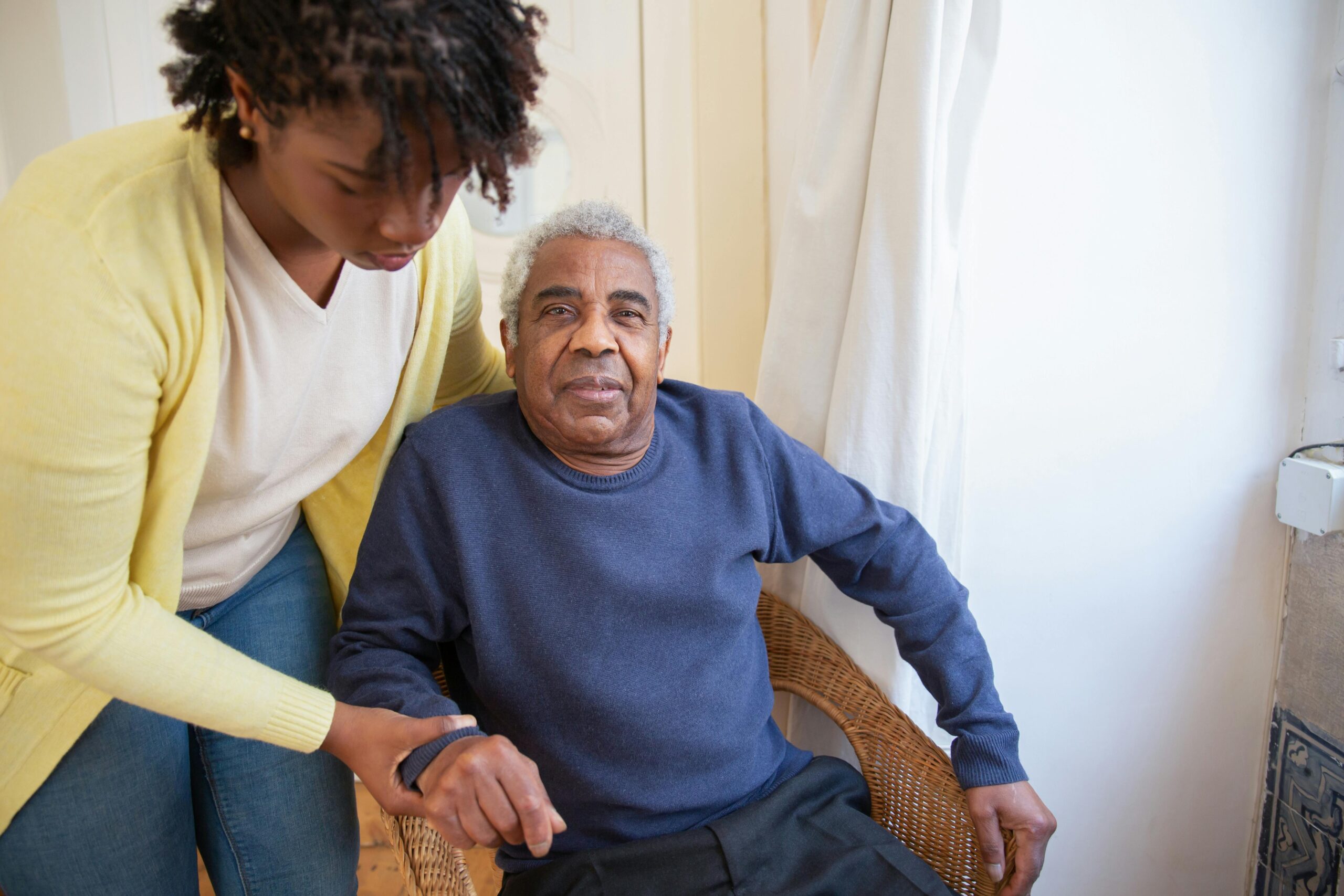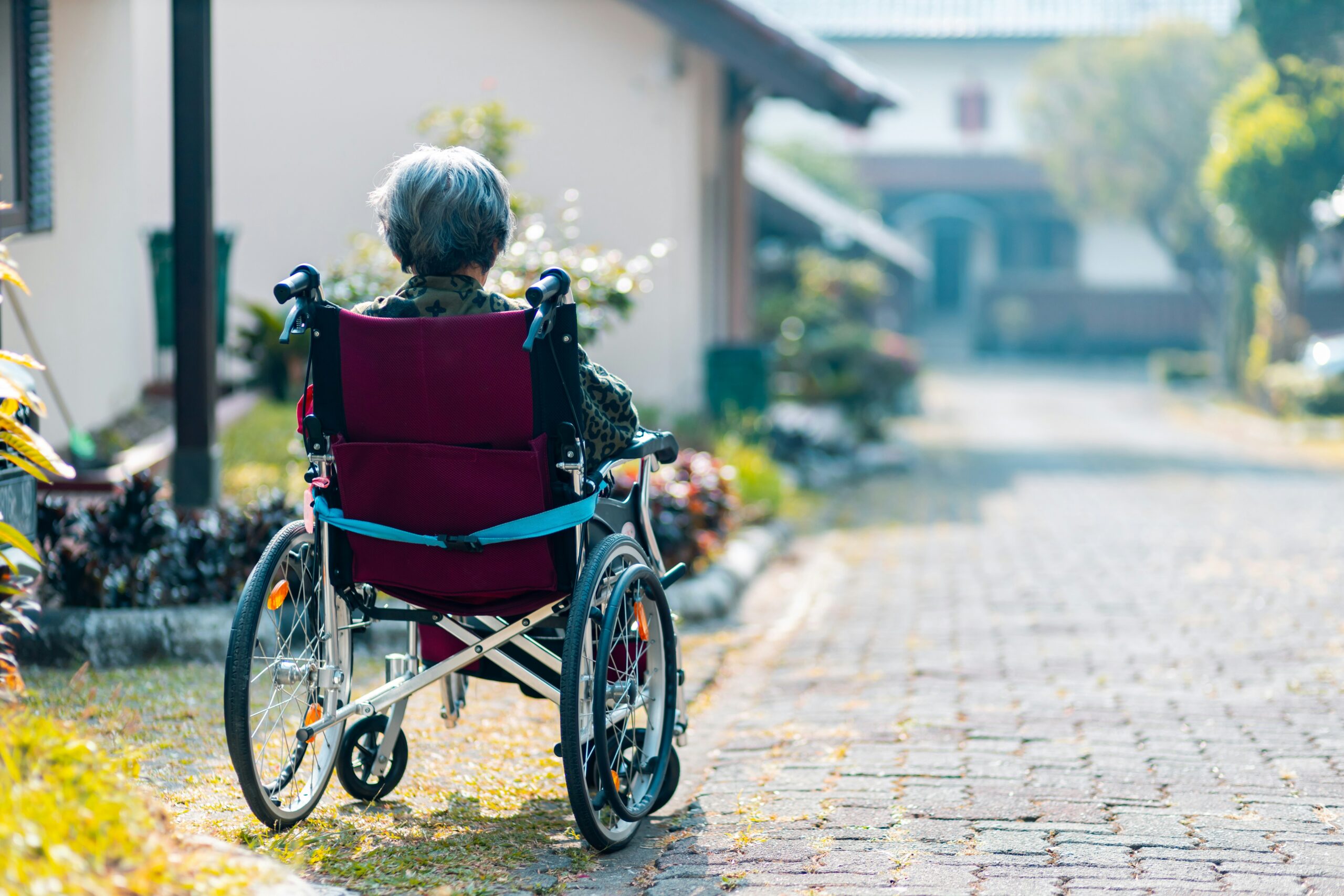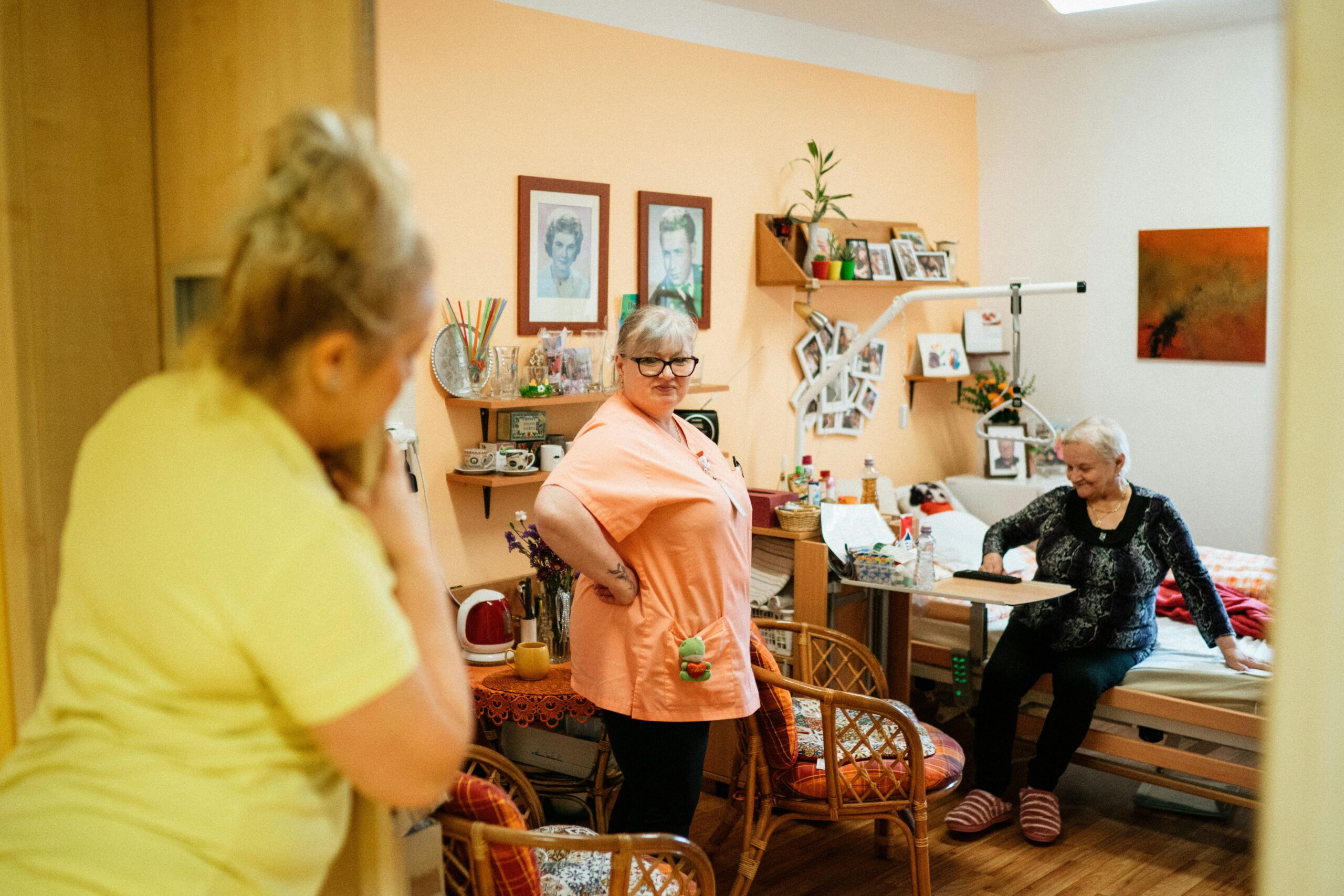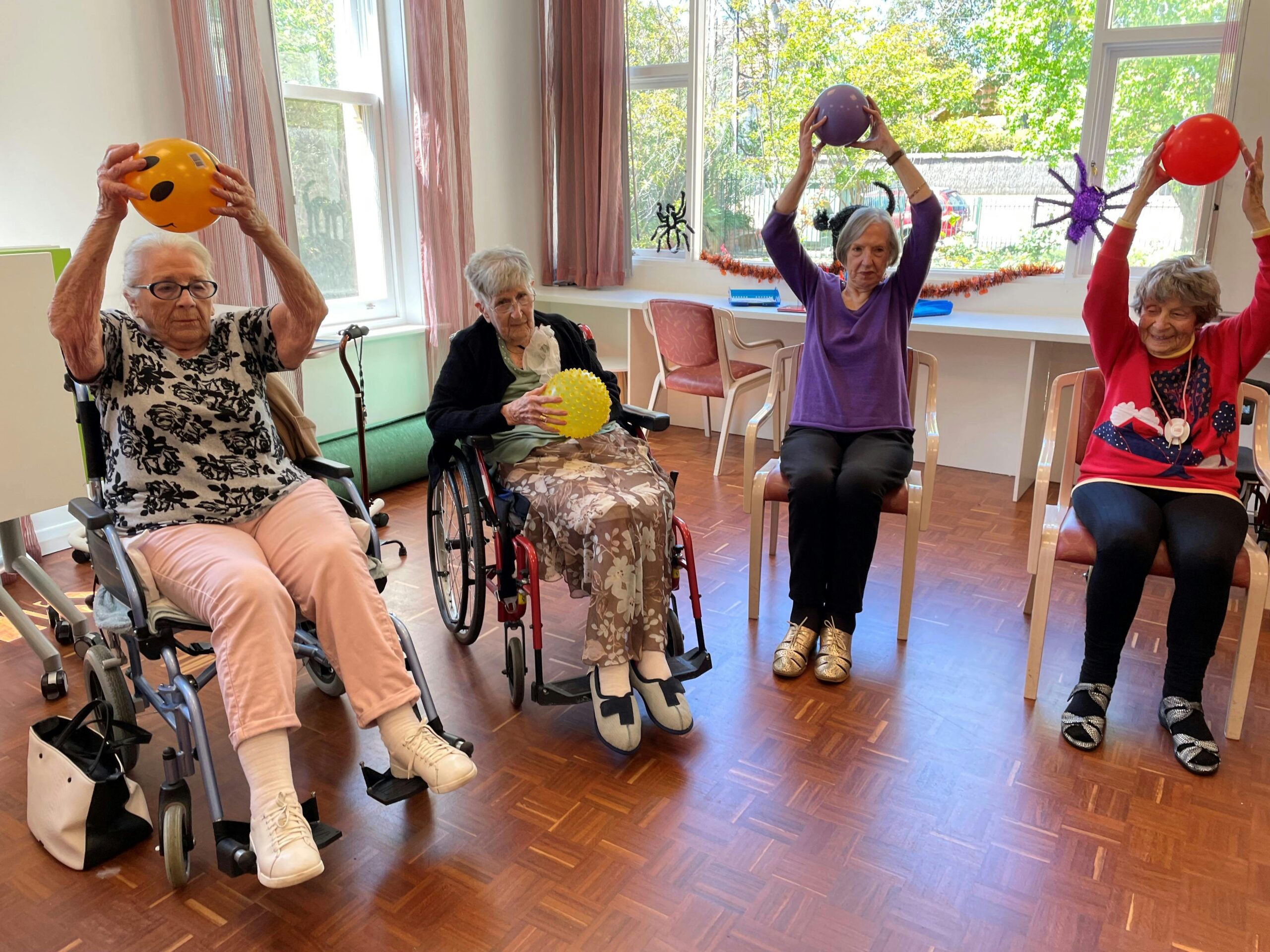Magic, Laughter, and Festive Fun: Sandpiper Residents enjoy spectacular Aladdin pantomime
Sandpiper Care Home was filled with magic and merriment on 13th December...
Learn more
21 January 2025
Respite care refers to temporary, short-term care provided to individuals who require assistance due to age, illness, or disability. Its primary purpose is to offer relief to caregivers, allowing them to take a much-needed break from their demanding responsibilities while ensuring that their loved ones continue to receive high-quality care in a safe and supportive environment. Respite care can be planned in advance or arranged in emergencies, making it a flexible and essential service for families navigating the challenges of caregiving.
Caregiving is a rewarding but often exhausting commitment that requires physical, emotional, and mental energy. Over time, the continuous demands of caregiving can lead to burnout, stress, and even health issues for the caregiver. Respite care addresses this by providing caregivers with the opportunity to step away temporarily from their duties to rest, recharge, or attend to personal matters. Whether it’s for a few hours, days, or weeks, this break allows caregivers to focus on their own well-being without feeling guilty or worried about the quality of care their loved one is receiving.
For the person being cared for, respite care ensures continuity of support and offers an opportunity for social interaction, engagement in new activities, and professional attention tailored to their needs. This dual benefit makes respite care a vital component of any caregiving plan.
Respite care can take various forms depending on individual needs and circumstances:
Each option is designed to ensure that the individual receiving care feels comfortable and supported while their primary caregiver takes time off.
Respite care is mutually beneficial for both caregivers and care recipients.
Respite care is more than just a break; it is an essential lifeline for families managing caregiving responsibilities. By prioritising the health and well-being of caregivers through regular breaks, respite care ensures that they can continue providing high-quality support over the long term. Simultaneously, it enhances the quality of life for care recipients by offering them enriching experiences in a nurturing environment.
Recognising the need for respite care is not a sign of weakness or failure but rather an act of self-care and foresight. It ensures that both caregivers and their loved ones are supported physically, emotionally, and mentally—creating a sustainable caregiving dynamic that benefits everyone involved.

Respite care is a flexible and invaluable service that caters to a wide range of individuals and families. It is designed to provide temporary relief for caregivers while ensuring that the care recipient continues to receive high-quality, tailored support. This dual benefit makes respite care an essential resource for those navigating the challenges of caregiving.
Respite care is available to individuals across various circumstances, including:
The flexibility of respite care ensures it can be adapted to meet the needs of any individual requiring temporary assistance.
Caregiving is a demanding role that can take a significant toll on physical and emotional well-being. Respite care provides caregivers with the opportunity to step away from their responsibilities and focus on their own health and personal lives. Key benefits include:
According to research, 71% of caregivers experience poor physical or mental health due to their responsibilities. Respite care plays a critical role in addressing these challenges by offering much-needed relief.
While respite care primarily supports caregivers, it also provides significant advantages for those receiving care:
For many recipients, respite care offers a refreshing change of pace while maintaining their dignity and well-being.
Respite care is a flexible service designed to cater to the diverse needs of caregivers and their loved ones. It comes in various forms, each tailored to specific circumstances and preferences. Whether care is needed at home, in a specialised setting, or during emergencies, respite care ensures that both caregivers and recipients receive the support they need.
Day care provides structured activities and social interaction for individuals needing care during the day. This option is often designed for older adults who require a safe, engaging environment.
Day care is ideal for individuals who enjoy socialising and participating in group activities. They also give caregivers regular breaks during the day to focus on work or personal responsibilities.
Short-term stays in residential or nursing care homes offer 24-hour support for individuals requiring more intensive care. These stays can last from a few days to several weeks and provide access to professional staff and facilities.
This option is suitable for individuals recovering from surgery or illness and those who need constant monitoring. It also provides caregivers with an extended break while ensuring their loved ones are well cared for.
Emergency respite care is arranged at short notice during unforeseen situations, such as when a caregiver becomes ill or faces an urgent commitment. This type of care ensures continuity of support during crises.
Emergency respite care is essential for families dealing with unexpected situations where immediate caregiving support is required.
Each type of respite care caters to different circumstances:
By offering these varied options, respite care ensures that both caregivers and recipients receive the right level of support at the right time.

Knowing when to seek respite care is crucial for both caregivers and care recipients. While caregiving can be a deeply fulfilling role, it often comes with significant physical, emotional, and mental demands. Recognising the signs that indicate the need for respite care can help prevent burnout, maintain the caregiver’s well-being, and ensure that the care recipient continues to receive high-quality support.
Caregiver burnout is a state of physical, emotional, and mental exhaustion caused by prolonged stress and overwork. Common indicators include:
Burnout can also manifest as resentment toward caregiving responsibilities or even the care recipient. If these signs appear, it is essential to seek respite care to allow the caregiver time to rest and recover before their health deteriorates further.
The health of caregivers often declines due to the demands of their role. Studies show that caregivers are more likely to experience chronic conditions such as high blood pressure, heart disease, and depression compared to non-caregivers.
Sleep deprivation is another common issue, with many caregivers struggling to get adequate rest due to their responsibilities. Overwhelming stress can lead to neglecting personal health needs, such as skipping medical appointments or failing to manage their own chronic conditions.
When a caregiver’s health begins to suffer—whether through physical illness or emotional distress—it may signal the need for respite care. Taking a break allows caregivers to prioritise their well-being and return to their role with renewed energy and focus.
Changes in the care recipient’s behaviour can also indicate the need for respite services. These changes may include:
Such changes can increase the strain on caregivers and may require professional support through respite care. This ensures that the care recipient receives appropriate attention while giving the caregiver time to regroup.
Life events such as holidays, work obligations, or family milestones often require caregivers to step away temporarily from their duties. Respite care can step in during these times to provide continuity of support for the care recipient. Whether it’s a few hours for a social event or several days for travel, planned respite allows caregivers to manage their personal lives without compromising on the quality of care provided.
Unforeseen circumstances—such as illness, injury, or sudden obligations—can leave caregivers unable to fulfil their responsibilities. Emergency respite care provides immediate support during these critical moments. Services can be arranged quickly in-home or at a residential facility, ensuring that the care recipient’s needs are met without interruption.
Having an emergency respite plan in place is highly recommended. This might include identifying local providers and maintaining an up-to-date care plan with details about the recipient’s medical history and preferences.
Integrating respite care into a long-term caregiving strategy is a proactive way to prevent burnout and maintain balance. Regularly scheduled breaks allow caregivers to recharge while ensuring sustainable support over time. Additionally, early use of respite services helps families become familiar with providers and processes, making transitions smoother when more intensive care is needed.
Seeking respite care is not a sign of failure but rather an act of self-care and responsibility. It acknowledges that caregiving is demanding work that requires support. By prioritising their own well-being through regular breaks, caregivers can continue providing compassionate and effective care for their loved ones.
Ultimately, recognising when to start respite care ensures that both caregivers and recipients thrive physically and emotionally. It fosters healthier relationships while maintaining high standards of care—a win-win for all involved.
The duration of respite care is highly flexible, designed to accommodate the unique needs of caregivers and care recipients. It can range from just a few hours to several weeks or even longer, depending on individual circumstances and the type of support required. This adaptability makes respite care an essential resource for families managing caregiving responsibilities.
For caregivers who need brief relief, respite care can last for just a few hours or a single day. This is often used to cover short-term commitments such as attending appointments, running errands, or taking time for self-care. In these cases, respite care or day care are common options:
Short-term respite care is ideal for those who need regular but brief breaks without major disruptions to their loved one’s routine.
Respite care lasting one to two weeks is a popular option for caregivers seeking a more extended break. This duration is often chosen when caregivers plan holidays, attend family events, or simply need time to recharge. During this period, care recipients may stay in a residential care home or receive live-in care at home:
This medium-term arrangement ensures that the care recipient’s needs are fully met while giving caregivers peace of mind during their absence.
In some cases, respite care may extend beyond two weeks and last for several weeks or even months. Long-term respite is typically used in situations such as:
Longer stays are often arranged in residential facilities where professional staff can provide specialised support tailored to the individual’s medical and personal needs. Some care homes also allow trial stays during this period to help families decide if permanent placement might be suitable in the future.
Emergency respite care can last anywhere from a single day to several weeks, depending on the situation. It is arranged at short notice during unforeseen circumstances such as:
Emergency respite ensures that the care recipient continues to receive uninterrupted support while the caregiver addresses urgent matters.
One of the key strengths of respite care is its flexibility. The length of time can be adjusted based on:
Choosing the right length of respite care is essential for balancing the well-being of both caregivers and recipients. Shorter durations provide regular relief without significant disruption, while longer stays offer opportunities for rest and recovery during demanding periods. Regardless of the timeframe, respite care ensures continuity of high-quality support tailored to each family’s circumstances.
By offering durations ranging from hours to months, respite care empowers caregivers to take necessary breaks while ensuring their loved ones remain safe and well-cared-for.

Respite care is designed to provide temporary support for individuals who require care, while giving their primary caregivers a much-needed break. The services included in respite care are comprehensive and tailored to meet the unique needs of both the caregiver and the care recipient. From personal care to medical assistance, respite care ensures continuity of high-quality support during the caregiver’s absence. Below, we outline the key services offered and explain how to arrange respite care effectively.
Respite care encompasses a wide range of services, depending on the type of care required and the setting in which it is provided. Common services include:
These services are delivered by trained professionals who ensure that the care recipient’s physical, emotional, and social needs are met.
Arranging respite care requires careful planning to ensure a smooth transition for both the caregiver and the individual receiving care. Below are the key steps involved:
Before booking respite care, it’s important to identify the specific needs of the care recipient. This includes:
A carer’s assessment (for caregivers) and a needs assessment (for the person receiving care) can be conducted through your local council. These assessments help determine eligibility for funding and identify suitable options.
Once needs are identified, research local respite care providers. Consider factors such as:
It’s advisable to contact providers 2–3 weeks in advance to check availability and suitability.
If opting for residential respite care, schedule a visit to the facility. This allows families to assess:
Visiting also helps reassure the care recipient about their temporary stay.
Most providers require a pre-admission assessment before confirming respite care. This involves:
This step ensures that the chosen provider can meet all necessary requirements.
Ahead of admission:
Some providers recommend labelling personal items to prevent loss during stays.
Planning ahead is key to ensuring a seamless respite experience. Here’s why:
For emergency situations where planning isn’t possible, many providers offer rapid-response services. However, having an established relationship with a provider can make emergency arrangements smoother.
Family caregivers play an essential role in providing support and care for their loved ones, often dedicating significant time and energy to their responsibilities. While caregiving can be deeply rewarding, it can also be physically, emotionally, and mentally demanding. Respite care is a vital service that offers caregivers the opportunity to take a break, focus on their own well-being, and regain balance in their lives. By addressing the challenges of caregiving, respite care helps sustain the health and effectiveness of caregivers over the long term.
One of the most significant ways respite care supports family caregivers is by helping to prevent burnout. Burnout occurs when the continuous demands of caregiving lead to physical exhaustion, emotional overwhelm, and mental fatigue. Without regular breaks, caregivers may experience:
Respite care provides caregivers with essential time away from their responsibilities. Whether it’s a few hours to relax at home or a longer break for a holiday or personal commitments, this time off allows caregivers to recharge both physically and mentally. By stepping away temporarily, caregivers can return to their role refreshed and better equipped to provide high-quality care.
Caregiving often leaves little time for personal needs or responsibilities. Many caregivers struggle to balance their role with other aspects of life, such as work, family obligations, or self-care. Respite care offers the flexibility needed to manage these competing priorities:
By alleviating the pressure of constant caregiving, respite services help create a healthier balance between caregiving duties and personal life.
In addition to reducing burnout and freeing up time for personal responsibilities, respite care offers profound emotional benefits for caregivers. These include:
Respite care also provides an opportunity for caregivers to reflect on their own needs and goals. This self-awareness can lead to better decision-making about long-term caregiving arrangements and personal well-being.
Caregiving is a marathon, not a sprint. Without regular breaks, even the most dedicated caregiver may struggle to maintain their physical and emotional health over time. Respite care supports family caregivers by creating a sustainable approach that prioritises both the caregiver’s well-being and the quality of care provided to their loved one.
Importantly, seeking respite care should never be seen as a failure or weakness. Instead, it is a proactive step that acknowledges the importance of self-care in maintaining a healthy caregiving dynamic. By taking time to rest and recharge through respite services, family caregivers can continue fulfilling their role with resilience and compassion while ensuring they remain healthy and supported themselves.

Respite care is not just a lifeline for caregivers; it also provides significant benefits to the care recipient. By offering tailored support, opportunities for social interaction, and exposure to new experiences, respite care enhances the well-being and independence of those receiving care. Whether delivered at home, in a day centre, or through short stays in a care home, respite care is designed to enrich the lives of individuals while meeting their specific needs.
One of the most valuable aspects of respite care is the chance for care recipients to engage socially. For many individuals, especially older adults or those with disabilities, social isolation can be a significant challenge. Respite care creates opportunities for meaningful interactions with others, whether through group activities in a day centre or conversations with professional carers and fellow residents in a care home setting.
These social opportunities not only improve mood but also provide mental stimulation, which is particularly beneficial for individuals with conditions such as dementia.
Respite care introduces individuals to new environments, activities, and routines that can enrich their lives. This change of pace can be refreshing and inspiring for those who may otherwise have limited access to varied experiences.
By encouraging exploration and participation in enjoyable pursuits, respite care supports personal growth and fosters a greater sense of fulfilment.
Respite care is highly personalised to meet the unique needs of each individual. Professional caregivers are trained to provide specialised support that ensures comfort and safety while promoting independence.
This tailored approach ensures that every aspect of the individual’s well-being is addressed during their time in respite care.
Respite care has a positive impact on both physical and emotional well-being. The structured support provided by professional carers ensures that individuals receive consistent attention while also benefiting from a change in routine.
These benefits combine to enhance overall quality of life for the care recipient.
Respite care empowers individuals by encouraging autonomy wherever possible. Professional carers work to build confidence by involving recipients in decision-making and daily tasks suited to their abilities.
This emphasis on independence not only benefits the individual during their time in respite care but also has lasting effects when they return home.
Respite care offers far-reaching benefits for the care recipient by providing tailored support alongside opportunities for social interaction and new experiences. It improves emotional well-being, enhances physical health, stimulates mental engagement, and promotes independence—all within a safe and supportive environment. Whether it’s a short break or part of an ongoing routine, respite care enriches the lives of those receiving it while ensuring they continue to thrive.
In the UK, funding for respite care depends on individual circumstances, including financial resources, the care recipient’s needs, and the type of care required. While private insurance may cover some aspects of respite care, most funding comes from local authorities, the NHS, charitable grants, or self-funding. Below is a detailed overview of the available options and eligibility criteria.
Local councils are a primary source of funding for respite care. To access this support, both the caregiver and care recipient must undergo assessments:
Once these assessments are complete, a financial assessment (or means test) determines whether the local authority will contribute to the cost of respite care.
For respite care related to medical needs, funding may be available through the NHS under specific conditions:
Charities play a crucial role in supporting families who do not qualify for local authority or NHS funding. Organisations such as Carers Trust, Turn2Us, and The Respite Association offer grants specifically for respite care. These grants can help cover costs such as:
Each charity has its own eligibility criteria and application process. For example:
These grants are particularly valuable for unpaid carers who often face financial strain.
If you do not qualify for council or NHS support and cannot access charitable grants, you may need to self-fund respite care. Costs vary widely based on the type of service:
Self-funding provides flexibility in choosing providers and tailoring services but can be expensive. Benefits such as Attendance Allowance or Personal Independence Payment (PIP) can be used to offset costs,.
Financial assessments are central to determining eligibility for publicly funded respite care. These assessments evaluate:
Key thresholds include:
It’s important to prepare documentation such as bank statements and details of disability-related expenses before undergoing an assessment.
Planning ahead ensures smoother access to funding and services:
If you’re unsure where to begin, local councils provide free advice on navigating funding options. Additionally, contacting organisations like Age UK or Carers Trust can help you identify resources tailored to your circumstances.
While insurance policies may cover some aspects of respite care in specific cases, most families rely on local authority funding, NHS support for medical needs, charitable grants, or self-funding. Understanding these options—and planning ahead—can help alleviate the financial burden of caregiving while ensuring access to high-quality respite services.

Yes, respite care can be used in emergency situations to provide immediate support when unforeseen circumstances disrupt regular caregiving arrangements. Emergency respite care is a short-term solution designed to ensure that the care recipient’s needs are met while offering peace of mind to caregivers during critical moments. Whether due to sudden illness, an accident, or other unexpected events, emergency respite care ensures continuity of care without delay.
Emergency respite care refers to temporary caregiving services arranged at short notice when a primary caregiver is unable to provide support. Unlike planned respite care, which is scheduled in advance, emergency respite care responds to urgent situations where immediate assistance is required. It can be provided in various settings, including:
Emergency respite care covers essential needs such as personal care, medication management, emotional support, and supervision. It ensures that the individual continues to receive high-quality care while the caregiver addresses their own urgent circumstances.
Emergency respite care is invaluable in a range of unforeseen situations, including:
Deterioration in the Care Recipient’s Health: A sudden decline in the health of the individual requiring specialised or immediate attention.
These situations can arise unexpectedly and may leave caregivers feeling overwhelmed. Emergency respite care provides a reliable safety net during such critical times.
Arranging emergency respite care requires quick action but can be managed effectively by following these steps:
While emergencies cannot always be predicted, having an emergency respite plan in place can significantly reduce stress when such situations arise. Consider these proactive steps:
Emergency respite care offers numerous benefits for both caregivers and recipients:
Choosing the right respite care provider is essential to ensure your loved one receives high-quality, compassionate care while you take a much-needed break. With so many options available, it’s important to evaluate providers carefully based on key factors such as staff qualifications, facilities, activities offered, and feedback from other families. Below is a detailed guide to help you make an informed decision.
The quality of care largely depends on the expertise and training of the staff. When evaluating a respite care provider, consider the following:
Qualified and experienced carers are crucial for ensuring your loved one’s comfort and safety during their time in respite care.
The environment plays a significant role in the overall experience of respite care. Whether you’re considering a residential facility or in-home care, assess the following:
For in-home respite care, confirm that carers are equipped with the tools and resources needed to deliver high-quality support within your loved one’s home.
Engaging activities are an important part of respite care as they promote mental stimulation, social interaction, and overall well-being. Ask about:
A variety of stimulating activities ensures that your loved one has an enjoyable experience while benefiting from social engagement.

The reputation of a respite care provider can give you valuable insights into their quality of service. To evaluate this:
A strong reputation indicates reliability and trustworthiness in delivering high-quality care.
Flexibility is key when choosing a respite care provider. Consider:
Providers who are responsive and adaptable will be better equipped to meet your family’s unique requirements.
Effective communication between caregivers and families is essential for a positive experience. Look for providers who:
A good match between carer personality and recipient preferences can significantly enhance comfort and trust.
Finally, ensure that costs are clear upfront. Ask about:
Transparent pricing helps you avoid unexpected expenses while ensuring value for money.
Tanglewood Care Homes stands out as an exceptional choice for respite care, offering a combination of personalised care plans, highly trained staff, comfortable facilities, and a welcoming environment. With a strong commitment to supporting both caregivers and care recipients, Tanglewood ensures that every individual receives high-quality, compassionate care tailored to their needs.
At Tanglewood Care Homes, care is centred around the individual. Each resident benefits from a personalised care plan that considers their specific needs, preferences, and routines. Whether it’s assistance with daily activities, medication management, or specialised support for conditions like dementia or physical disabilities, Tanglewood’s approach ensures that every aspect of care is tailored to the person receiving it. Families are encouraged to contribute to the creation of these plans, ensuring that loved ones feel understood and supported during their stay.
This person-centred approach not only provides peace of mind for caregivers but also ensures that residents feel comfortable and respected.
Tanglewood prides itself on its dedicated team of highly trained professionals who deliver exceptional care 24 hours a day, 365 days a year. Staff members are experienced in providing support across a wide range of needs, including dementia care, nursing care, and post-hospital recovery. They undergo continuous training to stay updated on best practices in health and social care.
The team’s compassion and attentiveness are at the heart of Tanglewood’s service. They take the time to get to know each resident personally, fostering trust and creating a warm, supportive environment where individuals feel valued and cared for.
Tanglewood’s 18 care homes are designed to provide industry-leading levels of comfort in homely surroundings. Each home is generously equipped with modern amenities that enhance the quality of life for residents:
These thoughtfully designed facilities create an inviting atmosphere where residents can feel at home while receiving professional care.
Tanglewood Care Homes offer a wide range of activities to keep residents engaged and stimulated during their stay. From yoga sessions to arts and crafts workshops, there is something for everyone to enjoy. These activities not only provide entertainment but also promote mental stimulation, physical health, and social interaction.
For those who prefer quieter pursuits, staff can arrange personalised one-on-one activities tailored to individual interests. This ensures that every resident has opportunities to participate in meaningful experiences during their time at Tanglewood.
Tanglewood Care Homes foster a community-oriented atmosphere where residents, families, and staff come together as part of an extended family. The homes are known for their warm hospitality and commitment to making everyone feel welcome. This nurturing environment helps residents settle in quickly and feel at ease during their stay.
The team at Tanglewood understands how important it is for caregivers to trust that their loved ones are in safe hands. By creating a welcoming space filled with kindness and compassion, they provide reassurance to families seeking respite care.
Tanglewood recognises the challenges faced by caregivers and is dedicated to providing them with the support they need. By offering flexible respite care options—including short stays, day services, or emergency respite—Tanglewood helps caregivers take a well-deserved break while ensuring their loved ones receive outstanding care.
This commitment extends beyond providing temporary relief; Tanglewood aims to build lasting relationships with families by offering guidance and support throughout the caregiving journey.
Choosing Tanglewood Care Homes for respite care means entrusting your loved one to a provider with an unwavering commitment to excellence. Key reasons families choose Tanglewood include:
With its focus on quality care and community spirit, Tanglewood ensures that both caregivers and recipients feel supported every step of the way. Whether you’re seeking short-term relief or exploring long-term options, Tanglewood Care Homes offers an exceptional standard of respite care designed to meet your family’s needs.
To learn more about Tanglewood Care Homes or to arrange a visit to one of our care homes, please call us on 01205 358888 or email us at info@twhealthcare.co.uk.